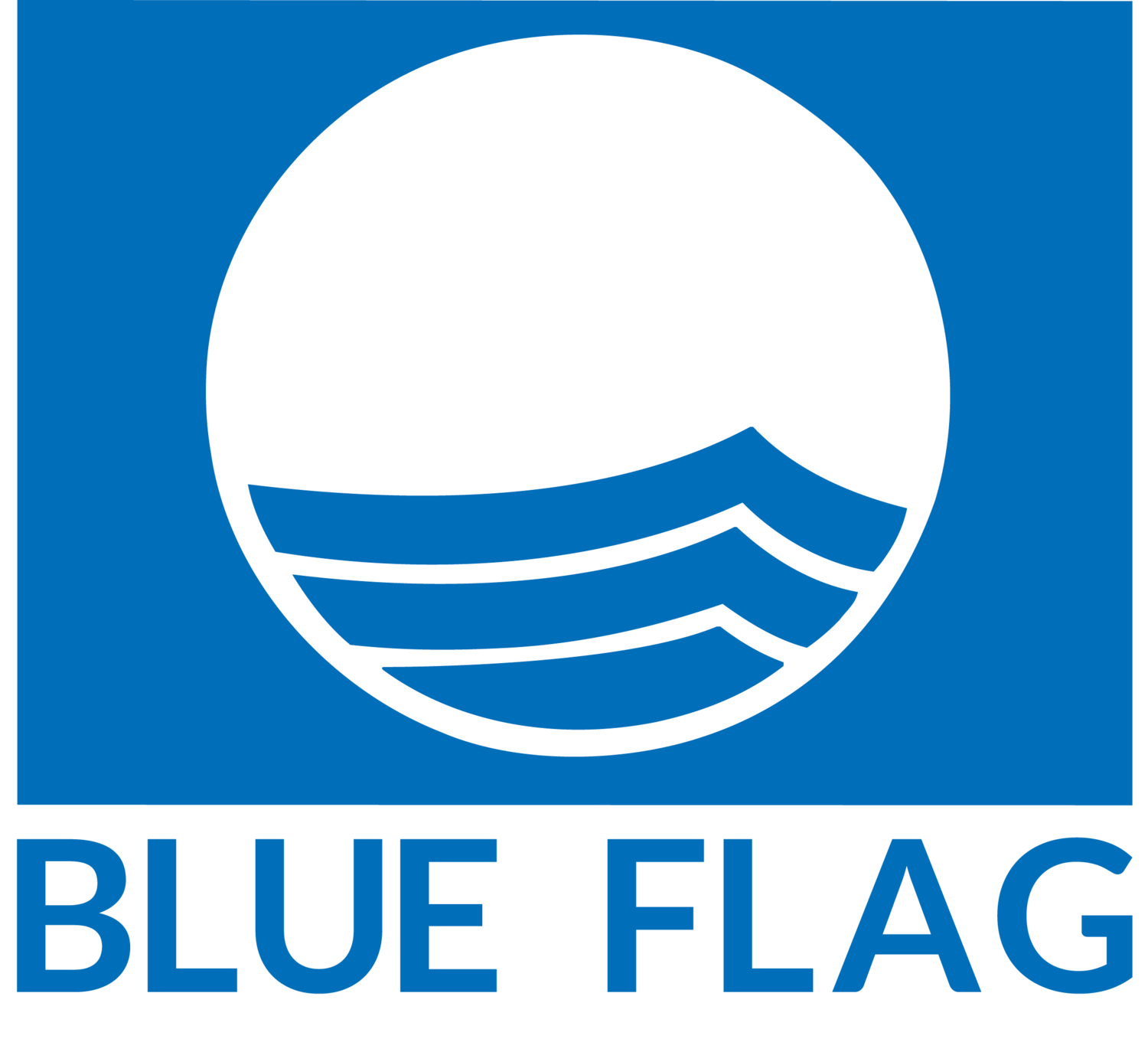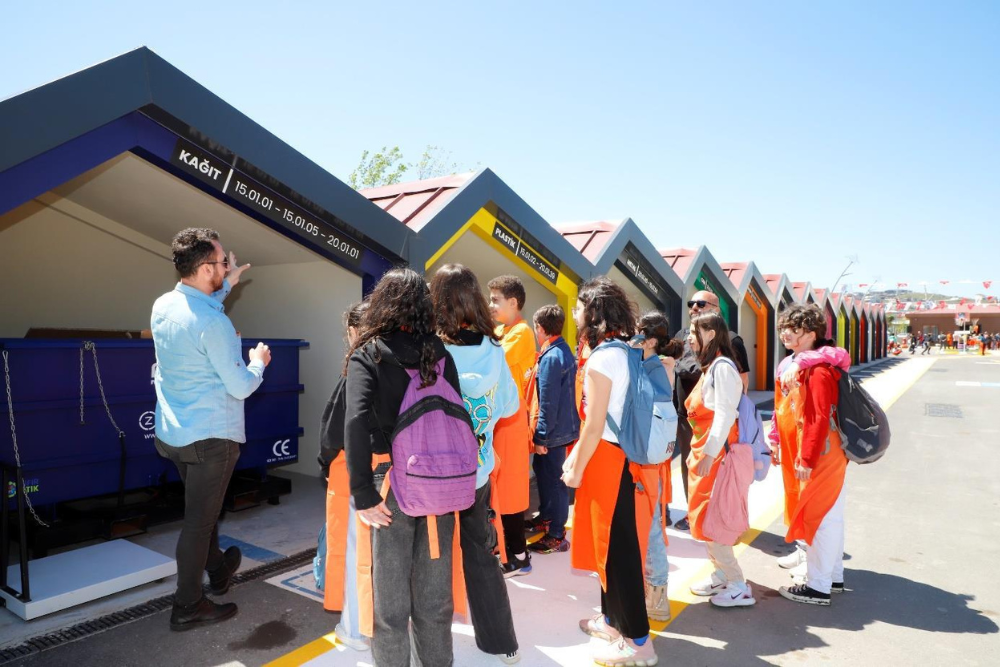As part of the Northern Hemisphere 2024 International Evaluation, Blue Flag International invited the National Operators to share Good Practice examples from their countries. The theme of this edition was ‘Environmental Education Activities’ that could be related to one of three categories: Climate Action, Biodiversity, and Pollution Prevention.
In total, 41 Good Practices have been submitted by 19 countries as part of the latest International Evaluation round. That included
23 Good Practices related to Pollution Prevention;
12 Good Practices related to Biodiversity;
6 Good Practices related to Climate Action.
The International Jury was then presented with a selection of Good Practices during its meeting on the 24th of April 2024, and evaluated the Good Practices within each category. In this process, relevance, creativity, adaptability, collaboration, and replicability were taken into consideration.
The final rankings are presented below, including the winning top 3 Good Practices from each category.
Environmental Education Activites: Climate Action
©Galway County Council
3rd place - ‘Sea Shore Event’,
Galway County Council, Ireland
An open-for-all event to discover and celebrate the richness of Irish shores. Among other educational activities, a seashore bioblitz was organised. The participants were tasked to find and identify as many living species as possible on the beach and in the sea, learning about local biodiversity, the importance of dune systems, and the role of nature-based solutions in preventing coastal erosion.
©Bridge and B5 beach operator
2nd place - ‘Dam of Posidonia on the Buljarica Beach’,
Bridge and B5 beach operator - Mornar group doo, Montenegro
A water stream that comes down to this beach used to cause frequent floodings, washing out the sand and making the area narrower. In order to mitigate the situation, Posidonia seagrass was planted at the mouth of the stream. Local managers decided that this example could be used to draw tourists' attention to the risks and consequences of climate change. Therefore, information boards were created, along with an awareness-raising quiz that was organised in the beach facilities.
©Palanga Town Municipality
1st place - ‘Mobile Climate Museum’,
Palanga Town Municipality, Lithuania
Sea containers transformed into a mobile museum on climate change. The exhibition presented the causes and effects of climate change, issues related to agriculture, loss of biodiversity, the importance of nature in human life, and offered practical suggestions on how people can make more sustainable choices in their everyday lives. Thanks to its mobility, the museum visited 16 cities across the country, raising awareness on climate-friendly solutions.
Environmental Education Activities:
BIODIVERSITY
©Municipality of Leiria
3rd place - ‘It’s in our hands’,
Leiria, Portugal
This project encouraged local youths to actively participate in nature conservancy activities. First, students learned about specific environmental issues relevant to the region, and the importance of fighting invasive species. Then, the participants were invited to a session of practical restoration activities, which included monitoring the weevil on the beach and controlling and eradicating the beach willow, herb pampas, and acacias. By having a chance to observe and actively contribute to reducing the adverse effects of invasive species in this territory, they improved their understanding of local ecosystems.
©Mayo County Council and Galway City Council
2nd place - ‘Protect Our Dunes’,
Mayo County Council and Galway City Council, Ireland
This initiative consisted of a series of 5 roadshow family events, aimed at raising local communities' awareness of how to protect dune systems in Northwest Ireland. Educational activities during the roadshow included Family Seashore Safaris and Q&A sessions with a Marine Biologist, teaching about dune systems and their biodiversity, as well as spreading knowledge of activities and behaviours that harm or protect the dunes. The project was supported by a social media campaign that promoted simple actions that everyone can take to protect the dunes.
©B7ar Bla Plastic 2023
1st place - ‘My booklet #Ocean without plastic’,
Morocco
To promote collective responsibility and educate about sustainable practices that preserve the Moroccan coastline, engaging booklets were designed. They were distributed at the Blue Flag awarded beaches, summer camps, schools, and to the scouts from the National Federation of Moroccan Scouting. Through numerous exercises and games, children could learn about marine biodiversity and endangered species. They were also able to discover what simple actions can contribute to protecting the beaches and their ecosystem.
Environmental Education Activities:
Pollution Prevention
©ZOFEMAT Solidaridad Municipality
3rd place - ‘BASKET PET: prepare the shot, shoot,
and score for the environment"’,
ZOFEMAT Solidaridad Municipality, Mexico
Basket PET fosters community engagement while gamifying the process of plastic waste recycling. Implemented in 4 different sites, the containers were created with reused pallets. Users remove and dispose of plastic bottle lids, empty the liquid residue in a dedicated tank to avoid contamination, and toss the bottle in the basket to dispose of them in a unique and fun way.
©Port Stanley Municipality
2nd place - ‘Microplastics, recycling, and
Zero Waste education’,
Port Stanley Main Beach, Canada
To enhance pollution prevention and environmental stewardship, three interactive workshops were delivered to local elementary classes. During the first workshop, students learned about the impact of microplastics on local habitats and wildlife, the common sources of microplastic pollution, and bioaccumulation, as well as the importance of the Blue Flag award, ocean and lake clean-up initiatives, and water conservation. The second session engaged thestudents in an interactive Sorting Relay Activity. The province’s new solution and Producer-Led Recycling Program was also discussed. In the last workshop, the students explored the fundamentals of Zero Waste, and were challenged to predict the time it takes for common materials to break down in landfills.
©Şile Municipality
1st place - ‘Civic Amenity Centre Project’,
Sile Municipality, Türkiye
The Şile Municipality designed educational workshops that are carried out at the local Waste Collection Center. Each session starts with basic training on environmental awareness, zero waste projects, recycling, and residents´ civic duties in waste management. An interactive art workshop is delivered where the participants restore old pieces of furniture that are later donated to local people in need. At the end of a session, attendees visit the Waste Houses to improve their knowledge of correct waste disposal and segregation. This is part of a strategy to turn waste collection centres into accessible facilities for residents to learn about circular economy and waste management.

















